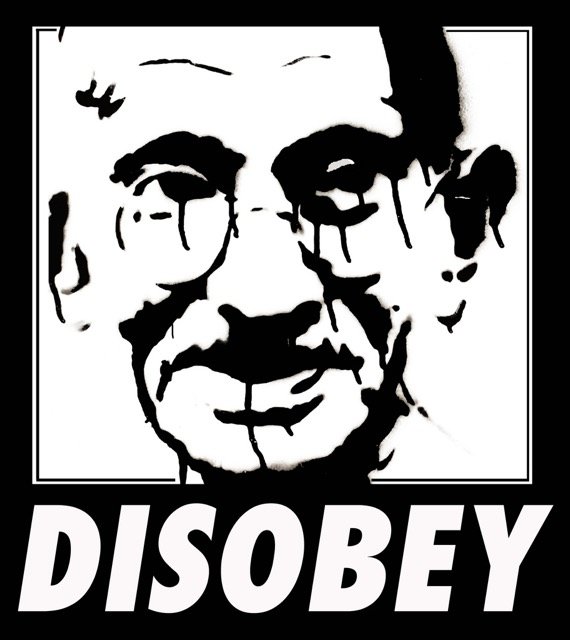
Based on psychological research I say you would. You probably argue that you wouldn't obey. That is precisely the point of this article. Why do people obey and do terrible things against their best moral judgement?
That was the question the psychologist Milgram wanted to answer 50 years ago.
Milgram was motivated by what he saw on the Nuremberg Judgment, at the end of the Second World War. Milgram was shocked by the answers of most nazis affirming that they were simply carrying out orders. In short, they were obeying.
He then decided to create an experiment where he could test if normal people (in this case Americans) would do the same thing if they were in a similar situation.
Obedience Experiment – The Milgram Experiment
The following video shows the experiment and its settings.
[](
Results of the Obedience Experiment
- 100% of the participants (i.e. teachers) went to administer 300 volts shocks
- 65% of the participants (i.e. teachers) continued to the highest level of 450 volts shocks
Conclusions of the Obedience Experiment
The results clearly show that ordinary people are willing to obey orders given by authority figures, as far as killing a human being, even an innocent one.
"Ordinary people, simply doing their jobs, and without any particular hostility on their part, can become agents in a terrible destructive process. Moreover, even when the destructive effects of their work become patently clear, and they are asked to carry out actions incompatible with fundamental standards of morality, relatively few people have the resources needed to resist authority."
— Stanley Milgram, Obedience to Authority
The process of obeying orders given by supposed authority figures function as follows:
- The authority figure needs to present itself as different by using specific hats, badges, wear a particular dress code or costume
- Through learning people are taught to identify those hats, badges and costumes as an authority figure
- By conditioning, people's behavior is shaped to respond with compliance and obedience to those hats, badges and costumes
- Through indoctrination people are led to believe that those authority figures:
- Know best
- Have your best interests at heart
- Are morally right
- Are legally based
This is far from the truth. The "legitimization" of authority starts at an early age and is learned through life by being exposed to a variety of human organizational structures as:
- Family
- School
- Religious organization (including cults)
- Working for big corporations
- Working for the government
- Mainstream media propaganda
This perception of authority figures is so pervasive that goes unconscious and unnoticed for the majority of us.

Hofling's Hospital Experiment on Obedience
A different experiment, the Hofling's Hospital Experiment, was done recently and reached to the same conclusions about how people obey supposed authority figures. In this experiment the setting was in a hospital and would involve nurses giving a higher dose of a drug (they didn't know it was a placebo) to a patient, when ordered by a "doctor" (supposed authority figure).[1]
Conclusions of the Hofling's Hospital Experiment on Obedience
Hofling's Hospital Experiment demonstrates again, that people are in general very reluctant to question supposed authority figures. This happens even when they feel that their moral compass tells them not to.
"The greatest crimes in the world are not committed by people breaking the rules but by people following the rules. It's people who follow orders that drop bombs and massacre villages."
— Banksy, Wall and Piece
The Chain of Command vs The Chain of Obedience
We assert that people, by obeying a supposed authority figure, are able to commit terrible crimes, abuses, violence, and death, but there is something missing in this explanation.
How this "chain" works is the important part. In general, is called the chain of command, where the orders flow from top to bottom, and people think they are obliged to execute them. This is the big lie that we were conditioned to believe in. The real power is in the hands of the ones that obey or disobey. If the orders are not executed there is no power. So what we have is a chain of obedience.
The following video illustrates very well this point of the Chain of Obedience:
[](
"I'm not scared of the Maos and the Stalins and the Hitlers. I'm scared of the thousands of millions of people that hallucinate them to be "authority", and so do their bidding, and pay for their empires, and carry out their orders. I don't care if there's one looney with a stupid mustache. He's not a threat if the people do not believe in "authority"."
— Larken Rose
How Come We Are Conditioned to Obey?
Some reflection on how some of the human organizational structures conditioned us to comply and obey.
"The governments of the great States have two instruments for keeping the people dependent, in fear and obedience: a coarser, the army; and a more refined, the school."
— Friedrich Nietzsche
Education System – Learning to be Conditioned to Obey
In general, education systems don't foster critical thinking, curiosity, or personal and spiritual empowerment.
Another aspect of those education systems is to feed us with irrelevant information to understand the world where we live in. For instance, schools don't teach basic human skills, like solving a conflict, how to communicate effectively, how to cooperate and work together. You don't learn the basics of what is money, how economy works, how you should or not handle money. You are not taught your basic human and civil rights. Survival skills are not taught. How to grow your food and take care of the environment are ignored. Self care and management are absent. Exploring spirituality not even mentioned.
On the other hand school will teach you to listen and obey to supposed authority figures, the teacher. Learn to fulfill schedules, and being seated, or not, for specific amounts of time. This is very much what is expected from you to perform in an office, factory, or religious service or military service.
Most people know more about the latest fashion, or discussion of sports, than their rights as a human being. When meeting a supposed authority figure in real life most don't know what to do except exhibit the response that they were conditioned to have like compliance and obedience.
Religious Organizations
Most of the outer aspect of religions, and the bureaucracy that supports it, are chains of obedience. Most people adopted a religion based on the place, or social environment where they were born. In general, it was not a conscious decision, it was another form of conditioning from an early age.
For most, if not in all religion organizations, critical thinking is not welcomed, it is often criticized, and in most situations outcasted. Critical thinking is replaced with belief. If people don't obey to the dogma, and/or praxis, they will find themselves repudiated and/or outcasted.
In plus, people are taught to obey the religious hierarchy on earth, with all its supposed authority figures, and to obey to a non physical hierarchy too, the so called ascended hierarchy.
If spirituality is about freedom, wisdom and love (at least for me) why this obsolete idea of hierarchical authority figures? Well, the answer has to do with obedience, either on earth or in the after life.
Main Stream Media – The Daily Reinforcement of Obedience
The main stream media is in charged of the daily reinforcing of the collective illusion. They do this by carefully choose the so called "relevant content" to feed people with.
The main stream media content to serve this obedience purpose circles around four main topics:
- Show authority figures – politicians, bankers, layers – in general playing benign roles, or being seen as a "normal person"
- Events that induce fear and intimidation – natural disasters, people that don't obey the police, army, and laws
- Distractions – movie stars, life of rich and famous, things of high status to buy, get rich quick schemes, glamour, sex, money, and moronic behavior as normal
- Clashes among different social groups – implementing the strategy of divide and conquer, and avoid people to unite
"The smart way to keep people passive and obedient is to strictly limit the spectrum of acceptable opinion, but allow very lively debate within that spectrum…."
— Noam Chomsky, The Common Good
Time For Civil Disobedience
How to break the obedience cycle, and empower ourselves towards a society where people are really free, with no forced obedience?
[](
"Civil disobedience becomes a sacred duty when the state becomes lawless and corrupt."
— Gandhi
Final Thoughts & Some Suggestions
Next time you meet a supposed authority figure remember that they are no different from you, just because they wear a funny hat or a costume.
Never, but never resort to violence against supposed authority figures. That is what the system is prepared to respond to. If you respond with violence the system will strike you hard and you will lose.
"Disobedience is the true foundation of liberty."
— Henry David Thoreau
Stay cool and remember also that the power is on your side not on them. If you don't comply or obey, they have no power. This is a thing that needs to be relearned, reminded, and shared if we want to make this a better and livable world, not just for ourselves, but for future generations.

"They may torture my body, break my bones, even kill me. Then they will have my dead body, but not my obedience."
— Mahatma Gandhi
Article by Jaime Grace at Awake Development
Enjoyed the article? Let us help share the word, please comment and resteemit with your friends. I hope you enjoyed my work please subscribe / become a Patron (link below).
SUPPORT
Donate bitcoin:
1Muiz2Q733u9nYWDdFbFwtj9m6gBmLeGxK


Hi! I am a robot. I just upvoted you! I found similar content that readers might be interested in:
http://awakedevelopment.com/2017/05/19/electrocute-another-person-told-dark-side-obedience/
Downvoting a post can decrease pending rewards and make it less visible. Common reasons:
Submit
Yes, that is my article at my website http://awakedevelopment.com
Downvoting a post can decrease pending rewards and make it less visible. Common reasons:
Submit